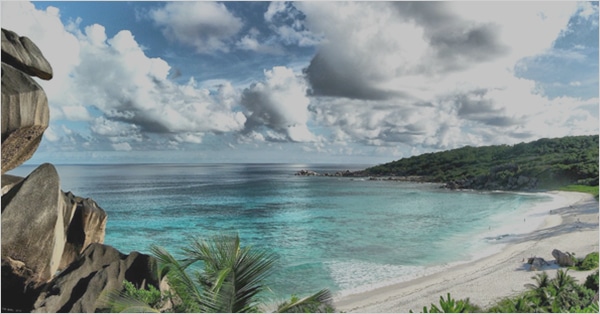Reforms linked to new loan will help mitigate the impacts and reduce vulnerability to climate change in energy, transportation, agriculture, tourism and water resources.
Mexico will implement an ambitious climate change program that includes mitigating greenhouse gas emissions and strengthening climate-related institutions, as part of a financial package approved yesterday by the Inter-American Development Bank.
The climate activities are among several measures Mexico has pledged to carry out under the programmatic policy-based loan (PBL) for $400 million approved by the IDB Board of Executive Directors.
The PBL is a flexible, fast-disbursing instrument that provides the Mexican Treasury with resources to finance its priority programs. As part of its agreement with the Bank, Mexico will implement specific activities under its National Climate Change Strategy, with results that must be verified as a condition for disbursement of the funds.
This is the second PBL approved by the IDB in support of Mexico’s climate change agenda. Under the first PBL for $200 million, approved in Nov. 2008, Mexico initiated a landmark study of the economic impact of climate change on its territory. That study provided the first compelling evidence that assuming the costs of mitigation and adaptation to climate change in Mexico could be considerably lower than the cost of doing nothing.
Building on the results of the study, the Mexican government will now implement a National Climate Change Program (known as PECC, for its initials in Spanish) that establishes short and medium-term mitigation and adaptation objectives and includes commitments with measurable results for priority sectors such as agriculture, tourism and water resource management.
“Mexico is one of the very few developing economies that are adopting emission reduction targets in advance of the U.N.’s Copehangen conference on climate change in December,” said Juan Pablo Bonilla, chief of the IDB’s Sustainable Energy and Climate Change Unit. “The government has set targets that could lead to an 18 percent drop in emissions by 2012, putting Mexico at the vanguard of the global movement to curb emissions.”
The Mexican government has also established a new Climate Change Policy General Directorate within SEMARNAT (Mexico’s Environment and Natural Resources Ministry), in charge of climate policy and the implementation and monitoring of the PECC. This will help consolidate efforts to link emerging scientific and technical knowledge under the responsibility of the National Institute of Ecology (known as INE), with the formulation of public policies at federal and state level.
Finally, under the new PBL Mexico will set in motion a series of financial mechanisms to jump-start investments in renewable energy and energy efficiency. These will include the Fondo de Transición Energética (energy transition fund) that was established under Mexico´s recently adopted renewable energy law (LAERFTE, for its initials in Spanish); expanded participation in carbon markets; and new programs to finance green energy through Mexico’s national development banks (such as NAFIN).
Earlier this year Mexico became the first country to submit an investment plan under the Climate Investment Fund or CIF (a joint program by the multilateral development banks). Specifically, Mexico has requested CIF funding for an energy efficiency program focused on housing and for wind power projects that are expected to be approved in 2010. If approved, these projects will be co-financed by the IDB and the CIF.
The IDB has committed more than US$5 million in technical cooperation grants to Mexico’s climate change programs from its Sustainable Energy and Climate Change Initiative (SECCI).






 Stay updated on the latest trends of Green Finance
Stay updated on the latest trends of Green Finance



